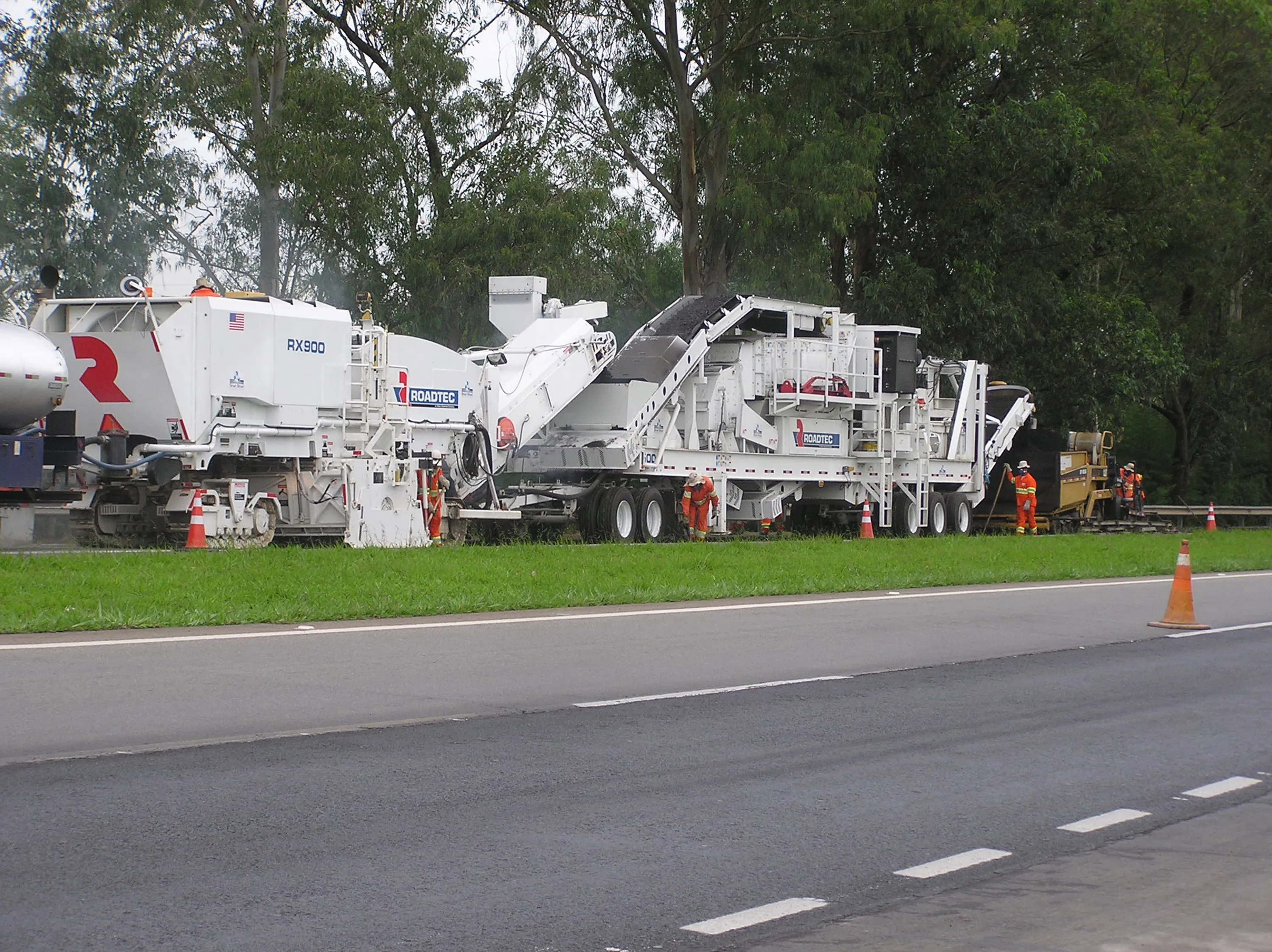Roadtec says that its cold-in-place recycling (CIR) equipment makes it possible to repair damage to a roadway in one single pass, while reusing up to 100% of the existing material. Savings potentials are significant, not only through reuse of material, but also by reducing equipment requirements, and through time savings.
The firm’s novel CIR process removes a portion of an existing asphalt pavement by milling to a depth of 50-100mm, and then repaving it with reworked asphalt-mix with additives. As the name implies, CIR is carried out without the need for heating the asphalt mixture, before or after placement. Depending on the structural requirements of the overall pavement and its intended use, the CIR typically receives a wear course such as a chip seal or HMA overlay to complete the road before returning it to traffic. Single unit systems do not include a method of screening and crushing.
Mounted to the rear of the milling machine, the CIR Additive System is the same width as the mainframe of the milling machine.
Meanwhile the firm is also introducing its new SX-8e/ex
soil stabiliser-reclaimer. With an operating weight of 37.2tonnes, the SX-8 is the biggest stabiliser-reclaimer in the Roadtec range and is capable of cutting up to 508mm deep by 2.5m wide. Designed for road rehabilitation, cold recycling, or soil stabilisation, the machine’s weight is said to be evenly distributed between the two axles, delivering cutting power more efficiently. The SX-8e is powered by a Tier 4 Interim Caterpillar C18 diesel delivering 563kW, while the SX-8ex is equipped with a Tier 3 Caterpillar C18 diesel rated at 515 kW and is aimed at lesser regulated countries.
The machine has a direct drum drive and the SX-8 rotor is said to be designed for milling and mixing resistant soils completely and homogeneously. A variable geometry cutter housing enables the SX-8 to achieve material gradation with each pass. The variable geometry design positions the cutter to promote material sizing as well as the flow of the material. Heavy-duty front and rear doors are hydraulically adjustable for additional control of gradation and flow.
A four-speed transmission allows cutter speed changes without losses in production. Four steering modes boost manoeuvrability while hydraulically-controlled suspension allows the depth of cut to be selected. The wheels are suspended by four independently-controlled hydraulically adjustable leg assemblies that are bolted to the mainframe.
Roadtec’s additive system for cold-in-place recycling
Roadtec’s innovative CIR Additive System can be used in the cold-in-place recycling of asphalt pavement. This is a useful technique for the repair and rehabilitation of asphalt-paved roads. The system is used to transfer, measure, and inject either emulsion or foamed asphalt to the cutter housing of the milling machine. The additive is then blended with the milled material and transferred for paving. Roadtec says that its cold-in-place recycling (CIR) equipment makes it possible to repair damage to a
November 6, 2017
Read time: 3 mins








